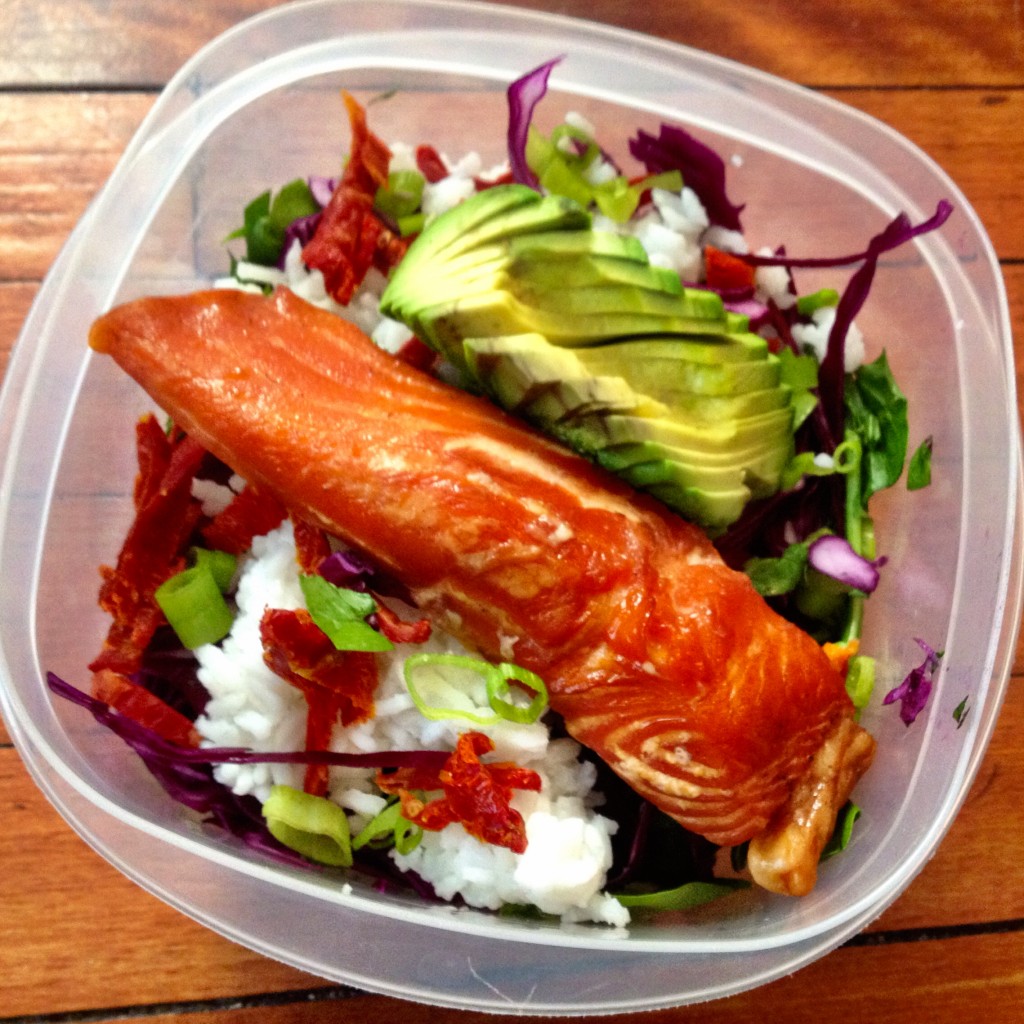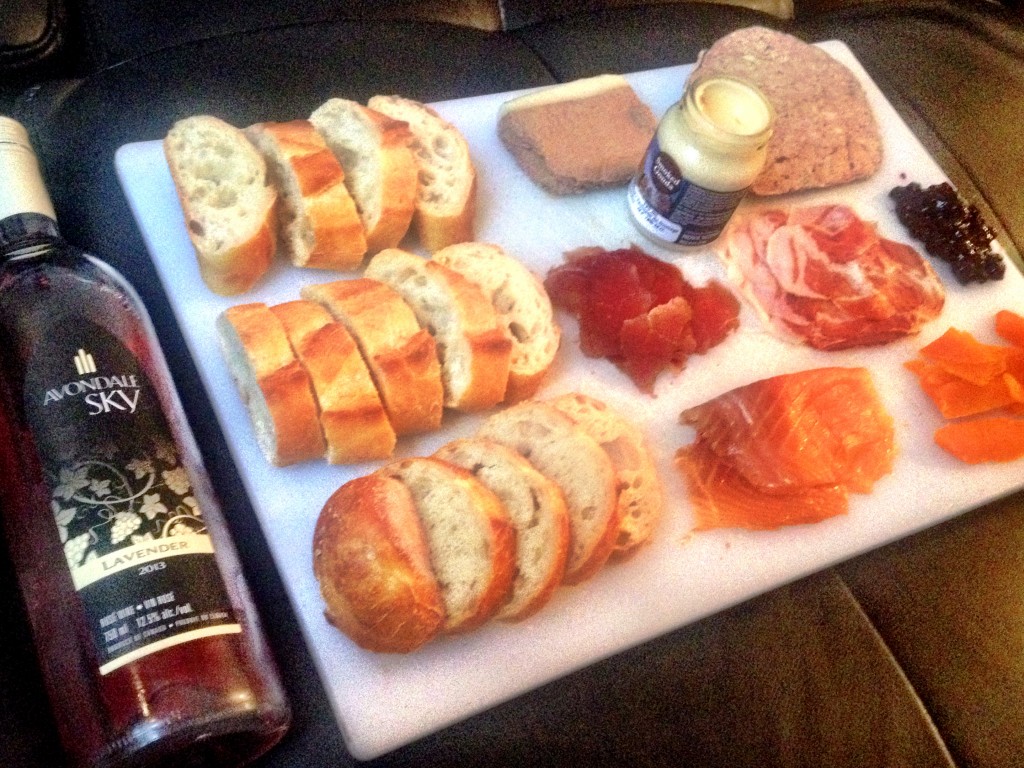According to the dates on my blog, it’s been since January that I last posted, with a serious dip in frequency from about this time last year. Where does the time go!? And perhaps you’re wondering, where did I go? 🙂
My blogging dry spell has been partly intentional, partly unintentional. As someone who develops content strategy and writes for a living at a quickly growing inbound marketing agency, sometimes the last thing I want to do at the end of a long day (or week) is write for myself. I admit I’ve let that get the best of me for the past few months. I’ve also justified this hiatus by telling myself that I’ve been doing more than just writing about what to do during times I could be writing—actually cooking, walking, hitting the gym or reading and learning more about the topics I’m passionate about.
While excuses are easy enough to come by, I think one of the main things that’s been holding me back is the fact that I’ve changed my mind about some things over the past year or so, and I don’t quite know how to reflect that in the content that already lives in this blog. And perhaps “changed” isn’t even the right word—it’s been more of an evolution based on what I’ve learned through ongoing reading, self-experimentation, and well—just living.
I considered this, and came to the conclusion that it doesn’t mean I need to “throw the baby out with the bath water” and stop posting here altogether—rather, that my blog (even in its current, somewhat stagnant state) still provides a platform to share my evolving views. What I wrote on my original “about” page made it sound like I had it all figured out, when this could not be further from the truth. At the risk of sounding cliché, I’ve realized that fitness, health, LIFE—anything that betters you, really—are not destinations as much as they are journeys. We will never stop learning, SHOULD never stop learning, and this is something to embrace.
Two quotes, both from admirable individuals, affirmed this for me:
- “The measure of intelligence is the ability to change.” – Albert Einstein
- “Those who cannot change their minds cannot change anything.” – George Bernard Shaw
With this mindset, I thought I’d break my blogging hiatus with a list of some of the most important lessons I’ve learned during this time.
1. Calories count
Disclaimer: do not misread this as a suggestion that all calories must be counted! Further, I don’t believe all calories are created equally. I’m still a strong believer that replacing packaged and processed foods with real, whole foods is one of the first most important steps you can take to improve your health, body composition and so much more. Ideally, this scenario means eating an abundance of quality foods that automatically help self-regulate hunger, energy and cravings (for example, it’s pretty difficult to overeat spinach, eggs, fish, broccoli, etc.—they’re nutrient dense and have a significant enough volume to help you feel full and satisfied when you eat them).
But, just because a food is high quality doesn’t mean that quantity doesn’t count. If your goal is fat loss, pounding almond butter and dates because “they’re technically whole foods” is NOT going to get you the results you’re after. Calorie-wise (and body composition-wise), you’re probably better off just eating the regular old cookie that you were craving in the first place.
I think this is one of my biggest critiques of the watered-down “paleo” that’s out there now that the movement has become more popular—but I was SO guilty of it too, and not that long ago! It’s easy to think that because a food is “approved” on whatever plan you’re on (gluten free, clean, paleo, etc) that it’s okay to eat it with abandon and assume you’ll still get results. While our bodies certainly aren’t calorie calculators, disregarding the quantity of energy we intake from our diets—from any source—is foolish, and possibly counterproductive to what we’re trying to achieve.
Recommended reading:
2. Carbs are not the enemy

Nor is any individual group of macronutrients, for the record. Context is the most important thing when choosing the composition of your diet.
When I first started to meaningfully revamp my nutrition, I dove into low carb paleo head first. So much of what I read at that time pointed to insulin (triggered by sugar and carb intake) as a fat-storing mechanism. The studies, articles and other information I was taking in further confirmed the perils of eating too many refined carbs and its contribution to many modern ailments like obesity, diabetes, heart disease, cancer… you get the drift. Having recently transitioned from a conventional diet I once thought was healthy but never got me results—consisting largely of packaged cereals, sugary soy milk, pasta, whole wheat breads, calorie-wise and light products, etc—suddenly it all made “sense”. Carbs and sugar were the enemy hurting me for all these years!
And so I ditched processed carbs, and saw results (at least at first, but I’ll get to that). In many ways, I credit a low carb, whole food approach with helping me permanently revamp the way I eat for the better—prioritizing high quality protein at meals and snacks, including lots high volume/fibre green veggies, and losing the fear of fat and cholesterol, especially from unrefined plant and animal sources. Eating these types of foods was transformational—I felt full and satisfied after meals, had more consistent energy through the day, got rid of blood sugar swings and resulting mood imbalances (“hanger”, anyone?) and was simultaneously losing fat and feeling great overall.
In the process, however, I developed a bit of a carb phobia—overcompensating for years of a diet based on processed carbs. I was simultaneously going hard in the gym, lifting more than I ever had. Eventually my results began to stall, and my cravings increased. I would work out like a maniac all week, eating as few carbs as I could, and then have an urge to binge on something “paleo approved”, like dates or fruit, on the weekend. My body was clearly trying to tell me something!
I started reading more about the role of glycogen in the muscles, and the benefits to recovery, muscle growth and even fat loss by adding starchy carbs post-workout. I started learning about adrenal fatigue and some potential dangers of long term, very low carb diets for athletes—particularly women. I decided to experiment and start adding more glucose-based carbs back to my diet in a more consistent fashion—primarily non-irritating starches like potatoes and white rice. I kept my protein up but pulled back on my fats a bit to compensate for the added energy from the carbs. And boom—cravings subsided, performance in the gym shot up, recovery and even digestion improved.
I still think that for the majority of the population, particularly for those who are sedentary or not incredibly active, a lower carb diet based on whole foods is likely the way to go. The Western world as a whole eats far too many refined, processed carbs, sugars and empty calories than our bodies are designed to handle, and it (among other things) is contributing to serious issues—no argument there. Additionally, more applications for low carb and ketogenic diets for treating a wide range of health conditions are also emerging that I think are extremely important. But if you’re an active individual, the inclusion of high-quality carbs may be critical to your health, performance and results maintenance, rather than a hindrance to them.
Recommended reading:
- Is A Low Carb Diet Ruining Your Health?
- The 3 Step Process to Determining Your Ideal Carb Intake
- When Should You Try a Low Carb Diet?
3. Beware of dogma
This point ties closely with lessons 1 and 2, and my somewhat lengthy introduction. In the quest for knowledge on any subject—and particularly when it pertains to health, fitness and nutrition—information from so many sources is rife with dogma (defined by Merriam-Webster as “a belief or set of beliefs that is accepted by the members of a group without being questioned or doubted”).
Many “authorities” and “experts” claim to have found the silver bullet for how to eat, move and live, and their followers and proponents—who achieve success through merit of the actual program, placebo, or other contributing factors—tout it as so, further disseminating the message and reinforcing it to one another. So often, the “silver bullet” is reductionist, fails to see a complete picture, or rejects new ideas and information even in the face of evidence and reason. You needn’t look far to see nutritional philosophies that embody this, taking on borderline religious form—whether it’s paleo, low carb, low fat, vegan, gluten free, raw food, Bulletproof, etc. etc. etc.
The bottom line is, while there are bits and pieces of most nutritional philosophies that hold merit (some more than others), it’s critical to question everything, self-experiment, and not just blindly follow protocols. It’s also important to vary your sources, as it’s easy to fall victim to confirmation bias (the tendency to search for or interpret information in a way that confirms one’s beliefs or hypotheses). We need to recognize that there’s still so much we don’t know—that most answers are not absolute—and challenge ourselves to stay open to new ideas and to change.
4. Consistency is key

There’s no pill, no one exercise, no one food that will make you healthy and fit. There’s no magic program that will truly transform you in a week. THERE IS ONLY CONSISTENCY. Consistent nutrition. Consistent, smart training. Consistent sleep, recovery and stress management. Practice and repeat. Sustainable progress and change happen slowly, and we need to embrace the process.
When you’re just getting started, the idea of consistency and its slow burn can prove challenging to our willpower. But there’s a HUGE upside and reward for staying consistent.
Consistency in your nutrition, training and recovery means that when you do go “off course”, the repercussions aren’t nearly as severe. Once you’ve been consistent for long enough, mindfully treating yourself to your favourite takeout or baked good every once in a while doesn’t mean instant fat gain or illness. Taking a week off the gym to travel doesn’t mean losing all the strength or muscle you’ve worked to build. Consistency means you never have to start back at square 1. Being consistent 80% of the time means that 20% of the time, you can enjoy your favourite bottle of wine, stay up a little later than you normally would, enjoy a proper freshly-baked baguette with charcuterie—because it’s LIFE, and it’s worth living well!
If you’re stressing about every thing that passes your lips or about every missed workout to the point of inducing anxiety, it’s likely counterproductive to your health. Low-grade, long-term stress is POISON (a bit on that here). The goal should be striving for a sustainable balance that helps you achieve and maintain realistic health goals while allowing yourself to enjoy life. Don’t let perfect get in the way of good!
5. There’s more to living well than diets and workouts

I saved this one for last because I think it’s the most important, though I realize I won’t be able to do the topic justice in a single point, let alone a single post. While I truly believe in the power of proper nutrition and smart exercise, there’s SO much more to living a healthy, fulfilled life—physically, mentally and emotionally. A few thoughts to illustrate where I’m coming from:
- The quality of relationships and connections to people in our lives may be the most overlooked, critical aspect to our well-being. Humans are social creatures, and while in many ways we live in a hyper-connected world, we’re simultaneously seeing unprecedented trends in loneliness. Research is revealing that loneliness is twice as deadly as obesity, and the equivalent of smoking 15 cigarettes a day. To truly achieve balance and health in our lives, we need to prioritize our relationships with others in our lives in addition to ourselves. [Recommended reading: The Age of Loneliness is Killing Us]
- The information we choose to consume is as important to building our minds as the food we consume is to building our bodies. Whether it’s celebrity gossip, reality TV, vapid Hollywood movies, or whatever (the options are seriously endless), consider—how much processed, manufactured junk could you stand to remove from your consciousness? What impact do these things have on your world view? And how much room in your mind are you making to learn new things, consider alternate opinions and points of view, and become better informed about the world around you?
- Despite our abundant access to food, our disconnection from it is unprecedented. Getting closer to the production source can help us avoid the pitfalls that come along with an industrialized food system. Particularly in Nova Scotia, with such a rich capacity for food production—farmers markets and independent grocers offer the opportunity to access high quality local food while “voting” with our dollars to support our economy, healthier choices for ourselves, and fairer, more sustainable food production practices.
- We spend an unprecedented amount of time indoors, much of it in front of screens. Being disconnected from the natural world and constantly surrounding ourselves with artificiality is ruining us. Making time to be outside and find ways to connect with nature is absolutely critical to our health and perspective on life. Best of all, it’s free. [Recommended reading: Research on the importance of nature to well-being and functioning]
- Having abs, a certain body fat percentage, getting a thigh gap, being a size 2 or achieving whatever superficial goal we set out for ourselves won’t make us love ourselves if we don’t already. Society fools us into thinking that our appearance will validate us, and promises us happiness if only we looked a certain way (usually to the advantage of big businesses willing to collect from us in exchange). While aesthetics can be a great motivator for making positive lifestyle changes, changing the way we look will never solve unrelated problems with self-worth and life satisfaction.
Like I said, this is really just the tip of the iceberg, perhaps better saved for future posts. And if you made it this far along, thanks for reading—it’s good to be back!
Well, I ve learned Content Marketing World Conference was the best investment I could make in my freelance writing business. I m glad we met there. Congratulations on your book and 5 years of blogging.